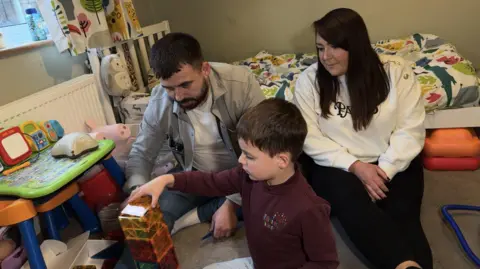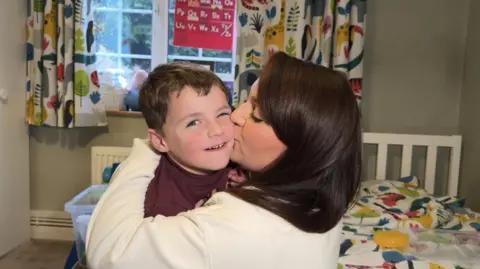Family's fear as autistic son left with no school
 BBC
BBCA mother from East Grinstead claimed her family is being "penalised" by a council, as her autistic son has not been offered a place at a suitable school.
Max, five, had to stay in nursery for an extra term, but can only remain there for one more term before he must start school.
Parents Nirvana and Stevie claimed one of them will have to quit their job if Max is not offered a place at a specialist primary school by December.
West Sussex County Council said it was experiencing "significant pressure and demand" but had been "working closely with parents and nurseries" to address challenges.
Although the family applied for Max's education, health and care plan in February 2023, it was not accepted until June 2024.
By that time, the family claims there were no specialist school places remaining.
"Autistic children deserve an education," Nirvana said.
"They shouldn't be ignored. I feel like we are being penalised."

The council agreed to fully fund Max's additional term in nursery, as well as one-to-one support.
Nirvana said the delay to Max's primary education is affecting his development.
"He used to speak and he has now regressed and lost that skill," she said.
She has criticised communication from West Sussex County Council, saying they often take weeks to reply and she frequently has to chase up late payments to the nursery.
Nirvana fears if Max is not offered a suitable school place by January, she or her husband will have to quit their job.
"We could lose our home because we cannot afford our mortgage from just one salary," she said.
"If we lose our home, we wont be able to rent due to low credit score. We could end up homeless."
Council 'working through' challenges
A West Sussex County Council spokesperson said the authority was experiencing "significant pressure and demand" for specialist school places.
They said staff were "working through" the challenges in securing places for some children with special educational needs and disabilities.
“We will continue to work with SEND providers and families to address the ongoing challenges," they added.